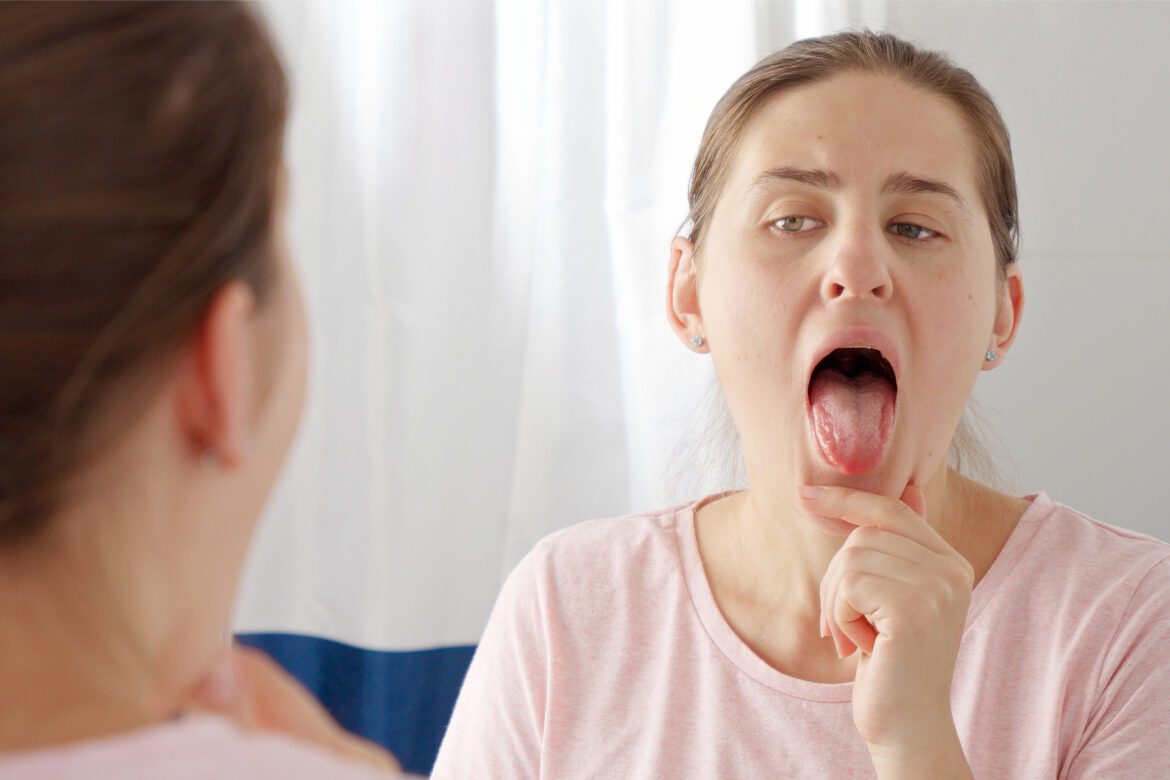Calling someone “long in the tooth”-a not-so-subtle dig at aging-can be literal for women entering menopause. Fluctuations and declines in estrogen affect nearly every tissue in your mouth, making perimenopause mouth problems like dry mouth, and gum issues like bleeding gums frustratingly common.
A 2023 survey of women 50 and older found that 70 percent experienced oral health changes like dry mouth, receding gums, or tooth sensitivity when they entered the menopause transition. Worse, 84 percent of those women were unaware that their oral health symptoms could be related to menopause.
These issues aren’t just uncomfortable; studies have linked systemic inflammation from gum disease to an increased risk of cardiovascular disease and diabetes. Since women of menopausal age are already at higher risk for those illnesses, taking care of oral health is a top priority.
Why Does Perimenopause Affect the Mouth?
Estrogen plays a key role in keeping your mouth healthy, from salivary glands to gum tissue. When levels drop in perimenopause, it sets off a cascade of changes-less saliva, more inflammation, and an increased risk of infection, explains OB/GYN and menopause specialist Shelly Chvotzkin, D.O.
Estrogen receptors exist all over the mouth and salivary glands, including the oral mucosa (the skin inside your cheeks), the roof and floor of your mouth, and your gums. When estrogen declines, it affects:
- Salivary glands, by reducing natural moisture and increasing infections like oral thrush.
- Gum tissue, making it more prone to inflammation and bleeding.
- Collagen production, weakening the integrity and health of gums.
According to Chvotzkin, other causes of perimenopause mouth problems include:
- Loss of bone density in the jaw, which can lead to tooth movement or loss.
- Teeth clenching and grinding (bruxism), which is often triggered by stress and anxiety-common occurrences in perimenopause and menopause-or by antidepressants prescribed to treat menopause symptoms.
- Nutritional deficiencies, like low vitamin D and B vitamins, can disrupt the balance of beneficial and infection-causing bacteria in your mouth.
Common Perimenopause Mouth Problems
The most commonly reported perimenopause-related mouth problems include:
- Dry mouth
- Bad breath
- Burning mouth syndrome
- Tooth sensitivity
- Bleeding gums
- Oral thrush
- Mouth sores
- Shifting teeth
Dry mouth
As many as 50 percent of women of menopausal age experience dry mouth, compared to 32 percent of men in the same age group, according to one small study from dental researchers.
When the estrogen receptors in your mouth are starved of the hormone, saliva production can fall, drying out your mouth. The arid conditions can put you at risk for cavities, damaged tooth enamel, and gum disease.
“Adequate salivary flow promotes a healthy balance of good bacteria, and more importantly it buffers out the acids that can cause cavities,” explains dentist Jossen Gastelum, D.M.D.
In addition to cavities, dry mouth can contribute to mouth sores and other oral infections and make talking, chewing, and swallowing a challenge, adds Chvotzkin.
Bad breath (Halitosis)
A dry mouth can also lead to bad breath during the perimenopause and menopause years. Why? Changes in estrogen and saliva production can allow harmful (and stinky) bacteria to flourish.

